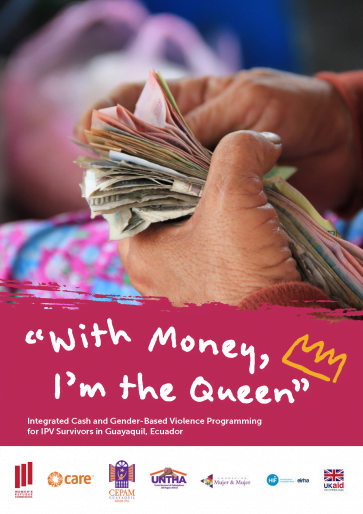Integrated Cash and Gender-Based Violence Programming for IPV Survivors in Guayaquil, Ecuador
Migrant and refugee women and girls are vulnerable to a range of risks before, during, and after humanitarian crises. Intimate partner violence (IPV) is a type of gender-based violence (GBV) and is among the many protection-specific risks they face.
As a result of the conflict in Venezuela, an estimated 800,000 Venezuelan migrants and refugees are in Ecuador as of May 2022. Eighty percent have significant protection needs, while response services for IPV survivors remain limited and insufficient for Venezuelans and Ecuadorians alike.
Cash and voucher assistance (CVA) is increasingly being used in humanitarian response. For displaced IPV survivors, their extremely limited financial resources often restrict, or prevent, access to key services, such as medical and legal support. The flexibility of CVA can enable a timely response to meet urgent needs safely. CVA integrated within GBV case management can, for example, help an IPV survivor cover the costs associated with fleeing an abusive relationship, such as legal assistance, temporary shelter and rent, transportation to access services, food, and clothing. However, there are considerable evidence gaps on how CVA contributes to protection outcomes and which design features are most effective in doing so.
This case study delves into these issues.



